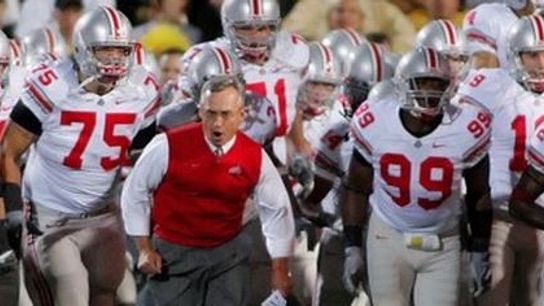Like many in a highly visible position, Jim Tressel says he thought about his legacy long before it started being written.
Speaking to the Cleveland Plain-Dealer, Tressel said this:
"Gene (Smith) and I talked often about the fact, and I asked him many times, because he'd always say, 'Let's extend your contract,' and I'd say, 'OK, but don't let me stay any longer than our program is going like that," Tressel said, sliding his hand in the air like a plane taking off, "because it's too competitive out there.
"The minute you start slipping, you don't even know you're slipping, but you've been slipping in inches. So that was very important in our discussions."
Last month we declared Ohio State the best, most consistent program in college football over the past 15 years, and that's due to one reason - the miraculous, near seamless exchange from College Football Hall of Famer Tressel to future Hall of Famer Urban Meyer. A transition like that never happens in this industry. There was no languishing through the end of an era like Florida State sat through with Bobby Bowden or Mack Brown with Texas. No four years of wandering like Florida has done since Meyer's departure. Yes, Ohio State went 6-7 in Luke Fickell's interim season, but Tressel left behind the bulk of a roster Meyer hit the ground sprinting with a 12-0 season in 2012.
Most college football transitions are behemoth oil tankers trying to execute a 180-degree turn. Ohio State's was a Ferrari shifting gears.
Of course, it bears mentioning why Ohio State's transition was so seamless in the first place. Tressel resigned on May 30, 2011, the conclusion of a six-month NCAA investigation in which his players accepted impermissible benefits and he, in turn, hid his knowledge of such violations. So it's entirely possible Tressel would have pulled the plug on himself after a pair of 8-4 seasons instead of riding out a half-decade of mediocrity, but he never had the chance to prove it.
Still, removing himself from the situation, that doesn't make Tressel's words any less true.
"I always felt that everyone talks legacy," Tressel said, "and I always thought that part of your legacy inevitably will be, 'How did the program do after you left? What shape did you leave it in?'"
